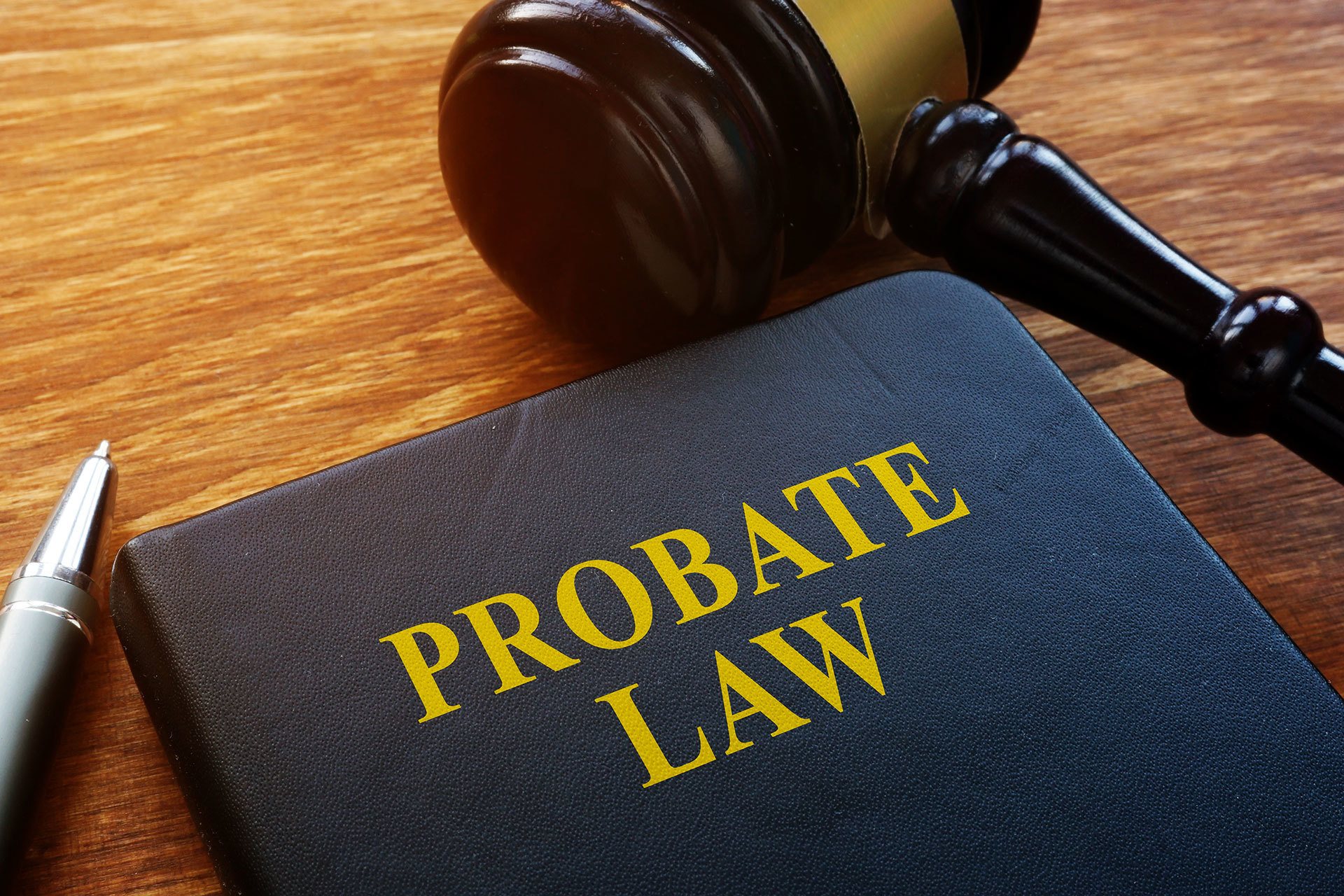Losing a loved one is undoubtedly one of life's most challenging experiences. Amidst the grief and emotional turmoil, families are often confronted with the legal complexities of settling their loved one's estate through the Massachusetts probate process. Our experienced Attorneys at Lane, Lane & Kelly understand the complexities of probate and can help provide clarity and guidance during this difficult time. In this comprehensive guide, we'll explore the basics of how we can help you navigate the probate process in Massachusetts.
What is Massachusetts Probate?
Probate is the legal process of transferring property and ownership after someone dies. This is a court-supervised process that begins by appointing a Personal Representative, which is usually the surviving spouse, a close family member or a probate attorney acting on the family’s behalf. This Personal Representative receives authority to then gather the decedent’s assets, pay debts and taxes, and after taking a full accounting they can eventually distribute the respective shares of the estate to the beneficiaries that are named in the Will (if there is one), or to the rightful heirs based on the laws of Massachusetts Intestacy (if the decedent dies with no Will). For a thorough breakdown of Massachusetts Intestacy Laws and who would inherit under different circumstances, please read our full guide here. In Massachusetts, the probate process typically involves:
- Validating the deceased person's Will (if one exists) in the Probate and Family Court in the county where the decedent lived.
- Appointing a Personal Representative to manage the estate.
- Inventorying and obtaining appraisals of estate assets.
- Paying the decedent’s debts, taxes, and expenses.
- Distributing remaining assets to beneficiaries (As outlined in the Will if there is one), or to the heirs at law pursuant to Massachusetts Intestacy Laws (if there is no Will).
How Probate in Massachusetts Works
The laws of Massachusetts Probate are outlined in the state adopted Uniform Probate Code (MUPC). Massachusetts adopted the code in 2012 and is one of many states (18) that follows this Uniform Code, which makes the probate process simpler, more defined, less expensive, and helps to streamline the entire process. This Code outlines three types of probate procedures depending on the size and complexity of the estate: informal, formal, and voluntary administration.
- Informal: This is a simplified process that is the most common type of procedure used in Massachusetts. The Personal Representative is free to conduct their responsibilities of collecting assets, selling any probate property, paying taxes, etc. with very limited supervision from the court. A Magistrate, not a Judge, administers informal probate, making the process far more expedient. To conclude the probate process, the Personal Representative simply files a sworn statement that they have completed their legal duties as the Personal Representative, all debts, taxes, and other expenses have been paid, and all estate assets have been property distributed.
- Formal Probate: As the name implies, this process has far more oversight from the Probate Court, specifically a Judge that is assigned to the probate case. All actions taken by the Personal Representative must receive direct approval from the Judge, and all interested parties to the estate must be given written notice of any proposed actions.
- Voluntary: This filing option pertains only to small estates. This process is used when the value of the decedent’s estate is less than $25,000 (excluding the value of one car) and there is no real estate. This process is much faster than informal or formal probate and it is the least expensive option.
When is Probate Necessary?
To determine whether an estate has to be probated depends on how the decedent’s property or assets were titled (owned) at the time of their death. Assets titled only in the name of the decedent pass through probate. Other types of assets that may need to go through probate are:
- Any real property that is solely held in the decedent’s name or held as tenants in common.
- Personal property such as furniture, family heirlooms, and cars (only if the decedent’s name is on the car title). Transferring ownership of a vehicle outside of probate can be done if there is a surviving spouse. The Registry of Motor Vehicles will issue a new title in the surviving spouse’s name, in order to sell the vehicle or transfer ownership to someone. When there is no surviving spouse, the vehicle will have to go through probate.
- Bank accounts or Savings Bonds held only the decedent’s name.
- Life Insurance policies and investment accounts that list only the decedent or the estate as a beneficiary.
The probate procedure in Massachusetts, and estate administration in general, is a complicated process involving many steps, and this legal blog is by no means an exhaustive list. Below we provide a general overview of the key steps involved in the Massachusetts probate process.
Key Steps in Massachusetts Probate
1. Filing the Petition:
The probate process begins with filing a petition in the appropriate Massachusetts Probate and Family Court depending on the county where the decedent lived. This petition is accompanied by the death certificate and together they initiate the probate proceeding and requests the appointment of a Personal Representative. The petition used will depend on the type of probate being requested (formal, informal, or voluntary).
2. Appointment of a Personal Representative
The court appoints a Personal Representative to oversee the administration of the estate. The Personal Representative is responsible for managing estate assets, paying debts and taxes, and distributing assets to beneficiaries.
If the decedent died with a Will, the Personal Representative will be named in the Will. If the decedent died without a Will (Intestate), the surviving spouse has first priority to act as Personal Representative. If there is no surviving spouse or the spouse does not wish to take on these responsibilities, then the Court would look to any other close family members to serve as Personal Representative. If there are none, or a family simply does not have the time to fulfill the responsibilities as the Personal Representative, then they can select an Attorney to act as the Personal Representative of their loved one’s estate. Many families will opt for this option, since acting as Personal Representative can feel like a full-time job during the entire probate process, which, depending on the size of an estate and the number of assets held by the decedent, can take up to a year or even more. As a last resort the Court can always appoint a third-party to act as the Personal Representative.
3. Inventorying and Appraising Assets
The Personal Representative identifies and inventories all estate assets, including real estate, financial accounts (checking savings, brokerage, retirement accounts), personal property, and any other investments. Assets may need to be appraised to determine their fair market value. If the decedent dies Intestate, the sale of the real estate will require a petition to sell or sometimes a S-Petition filed with the Land Court in Boston. These can draw out the probate process even longer as all heirs will have to assent to the sale of the property before the Personal Representative can move forward with hiring a broker and putting the property on the market to sell.
4. Paying Debts and Taxes
The Personal Representative uses estate funds to pay outstanding debts, taxes, and administrative expenses. This may include mortgage payments, medical bills, funeral expenses, and income or estate taxes. The Personal Representative will be responsible for filing a final state and federal tax return for the decedent. Massachusetts also imposed its own estate tax on estates that are worth more than $2 million.
5. Distributing Estate Assets
Once debts and taxes are settled, the remaining assets are distributed to beneficiaries according to the decedent’s Will, or to the heirs at law pursuant to Massachusetts Intestacy laws (if there is no Will).
Importance of Estate Planning in Probate
Estate planning is a proactive approach to managing your assets and affairs during your lifetime and after your death. Effective estate planning strategies can help minimize the need for probate and streamline the probate process. While having a Will does not negate the need for probate entirely, it can help speed up the process by properly defining the Personal Representative, beneficiaries, and any other wishes that you want carried out after your death. It is a common misconception that we hear from clients that because you have a Will, your estate will not go through probate. This is not the case. There are, however, other estate planning tools that can help avoid probate entirely, and make things even easier for your loved ones after you pass. For more information on these tools, please read this legal blog post about Wills and Trusts and how they should be used together in your estate plan.
Some key estate planning tools include:
- Revocable or Irrevocable Trusts: Assets held in a trust can bypass probate entirely and be distributed directly to beneficiaries.
- Designation of beneficiaries: Naming beneficiaries on your retirement accounts, life insurance policies, and bank accounts can facilitate the transfer of assets outside of probate. Any accounts with a named beneficiary or a Pay-On-Death (POD) designation pass directly to the beneficiary.
- Joint ownership: Certain forms of joint ownership, such as joint tenancy or tenancy by the entirety (only for married couples), include a right of survivorship that allows assets to transfer to the co-owner or surviving spouse immediately upon death. Read more about the different ways to hold title in Massachusetts here.
Seeking Guidance from an Experienced Probate Attorney
Navigating Massachusetts probate laws can be complex, especially for families dealing with the emotional challenges of losing a loved one. Consulting with attorneys experienced in probate administration, such as those at Lane, Lane & Kelly, LLP, is essential to ensure that the probate process proceeds smoothly and efficiently. A probate attorney can provide valuable guidance on estate administration, asset distribution, tax implications, and legal requirements. Whether you are in need of a Personal Representative to take on the complex responsibilities of probate administration, or need guidance on the probate process, the attorneys at Lane, Lane & Kelly are here for you every step of the way.
In summary, understanding Massachusetts probate and the role of estate planning can help families navigate the legal complexities of settling a loved one's estate. By seeking professional guidance and taking proactive steps, individuals can ensure that their wishes are carried out properly and their assets are protected in accordance with Massachusetts law. At Lane, Lane & Kelly, our dedicated probate attorneys are here to provide compassionate support and expert legal assistance during this challenging time.
Please contact our office at (781) 848-0040 or click the button below to get started today.
This blog is made available for educational purposes only as well as to give you general information and a general understanding of the law, not to provide specific legal advice. By reading this blog you understand that there is no attorney client relationship between you and Lane, Lane & Kelly, LLP.

Matthew B. Lane
Matthew is an Attorney at Lane, Lane & Kelly, LLP. Matthew attended Rensselaer Polytechnic Institute obtaining his undergraduate degree in Business & Finance in 2016, graduating with Magna Cum Laude honors, and later graduated from Suffolk University Law School in May 2025 with Cum Laude Honors. Matthew primarily practices in the areas of Estate Planning, Probate & Trust Administration, and Real Estate Conveyancing.


